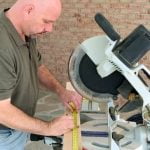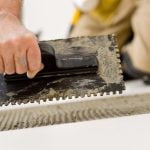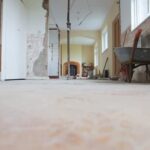Are you wondering, “Can I deduct receipts for improvements on a home purchase?” Understanding the concept of tax deductions for home improvements is crucial for homeowners. It’s important to know what can and cannot be deducted to maximize potential tax benefits and avoid any potential penalties. This article will provide a comprehensive guide to help you navigate the complexities of deducting home improvement expenses.
When it comes to understanding home improvement expenses, it’s essential to have a clear definition of what qualifies as a deductible expense. From renovations to repairs, various expenses may be eligible for deductions. By gaining insight into common home improvement expenses, homeowners can accurately assess which costs may be deductible and which may not.
Differentiating between deductible and non-deductible expenses is also crucial in maximizing potential tax benefits. There are common misconceptions about which home improvement expenses can be deducted, and it’s important to dispel any confusion to ensure accurate reporting on tax returns. Understanding the eligibility requirements and potential limitations on the types of improvements that can be deducted is essential for homeowners looking to make the most of their deductions.
Understanding Home Improvement Expenses
Home improvement expenses can add up quickly, from major renovations to smaller upgrades and repairs. But can these expenses be deducted on your taxes? Understanding what qualifies as a home improvement expense is crucial for homeowners looking to maximize their tax benefits.
Definitions of Home Improvement Expenses
In the context of tax deductions, home improvement expenses typically refer to any costs incurred to make significant enhancements or additions to a property. This can include renovations such as kitchen remodels, bathroom upgrades, adding a new room, or finishing a basement. It also extends to exterior improvements like a new roof, siding, or landscaping. Even certain systems and appliances like HVAC units and water heaters may qualify as home improvement expenses.
Examples of Common Home Improvement Expenses
Some common examples of home improvement expenses that
- Installing energy-efficient windows
- Upgrading electrical or plumbing systems
- Adding a deck or patio
- Finishing a basement or attic
- Remodeling the kitchen or bathrooms
It’s important to note that routine maintenance and minor repairs typically do not qualify as deductible home improvement expenses. Maintenance tasks like painting, fixing minor leaks, and replacing broken fixtures are generally considered regular upkeep rather than deductible improvements.
Deductible vs Non-Deductible Expenses
When it comes to making improvements in your home, it’s important to understand the concept of deductible vs. non-deductible expenses for tax purposes. Home improvement expenses that can be deducted are costs that increase the value of your property or extend its useful life, such as adding a new room or renovating a kitchen. On the other hand, routine repairs and maintenance costs are considered non-deductible expenses.
Understanding Deductible Expenses
Deductible home improvement expenses include any work that adds substantial value to your home, makes it more energy-efficient, or extends its useful life. This can involve major renovations such as adding a new bathroom or bedroom, installing a new roof, or upgrading heating and cooling systems. Additionally, if you make any improvements for medical reasons – like adding wheelchair ramps or support bars in bathrooms – these expenses can also be deducted.
Non-Deductible Expenses
On the other hand, routine maintenance and repair costs are not deductible. This includes things like painting rooms, fixing leaks in plumbing, replacing broken windows, or repairing broken appliances. While these types of expenses are necessary to maintain your property, they do not qualify as deductible home improvement expenses according to the IRS guidelines. It’s important to keep this distinction in mind when considering what receipts from home improvements can be deducted.
Eligibility Requirements
When it comes to deducting receipts for home improvements on a home purchase, it is important to understand the eligibility requirements set forth by the Internal Revenue Service (IRS). Not all home improvement expenses can be deducted, so it is crucial to know what qualifies and what does not in order to accurately report them on your tax return. Here are some key eligibility requirements to consider:
- Permanent Improvement: In order for a home improvement expense to be eligible for deduction, it must be considered a permanent improvement that adds value to the home. This includes projects such as adding a new roof, installing new windows, or renovating a kitchen or bathroom.
- Capital Improvement: The IRS considers eligible home improvement expenses as capital improvements, which are defined as assets that enhance the value of the property. This means that routine repairs and maintenance cannot be deducted.
- Main Home: The home for which the improvements are being made must be your main residence in order for the expenses to be eligible for deduction. Second homes or investment properties may have different rules regarding deductible expenses.
It is important to note that not all types of improvements on a home purchase can be deducted, so homeowners should consult with a tax professional or accountant if they are unsure about whether certain expenses qualify for deduction.
Keep in mind that eligibility requirements set by the IRS can change over time, so staying informed about current tax laws and regulations related to home improvement deductions can help ensure accurate reporting on your tax return.
It is also worth noting that there may be limitations on the types of improvements that can be deducted based on specific criteria outlined by the IRS. This underscores the importance of maintaining thorough and accurate records of all home improvement expenses in order to substantiate their eligibility for deduction. Overall, understanding and meeting these eligibility requirements is essential when considering whether receipts for improvements on a home purchase can be deducted.
Documentation and Receipts
When it comes to deducting receipts for improvements on a home purchase, documentation and receipts play a crucial role in the process. Keeping thorough and accurate records of all home improvement expenses is essential for ensuring that you are able to take advantage of any potential tax deductions.
To help you stay organized and prepared, here are some tips for managing your documentation and receipts:
- Create a dedicated folder or filing system specifically for home improvement receipts and documentation.
- Clearly label and organize each receipt by category (e.g. renovations, repairs, upgrades) to make it easier to identify expenses at tax time.
- Consider using digital tools or apps to scan and store receipts electronically, making it easier to access and track expenses.
By maintaining clear and detailed records of your home improvement expenses, you can provide the necessary documentation to support your deductions when filing your taxes.
Additionally, be sure to review any specific requirements for documenting home improvement expenses set forth by the Internal Revenue Service (IRS) or other relevant tax authorities in order to ensure compliance with their guidelines. This diligence can not only save you time in the long run but also help prevent potential issues or audits related to your tax returns.
With proper documentation, homeowners can confidently navigate the complexities of deducting receipts for improvements on a home purchase while maximizing potential tax benefits with peace of mind.
Reporting Home Improvement Expenses
When it comes to reporting home improvement expenses for tax deductions, it is important to understand the process and requirements. Home improvement expenses that qualify for tax deductions include those that add value to the property, prolong its useful life, or adapt it to new uses. This can include costs associated with renovations, additions, landscaping, and more.
In order to report these expenses accurately on your tax return, you will need to keep thorough and accurate records of all home improvement expenses. This includes receipts, invoices, contracts, and any other documentation related to the work done on the property. Without proper documentation, you may not be able to substantiate your claims for deductions in case of an audit by the IRS.
When reporting home improvement expenses on your tax return, it is important to follow the guidelines set forth by the IRS. Depending on the nature and amount of the expenses, you may need to fill out specific forms or attach certain documents when filing your taxes. By understanding how to properly report these expenses, homeowners can maximize their potential for tax benefits while also ensuring compliance with IRS regulations.
| Expense | Amount |
|---|---|
| Kitchen Renovation | $15,000 |
| Bathroom Remodeling | $10,000 |
| New Roof Installation | $8,000 |
By keeping clear records of all home improvement expenses and understanding how to properly report them on tax returns, homeowners can take advantage of potential tax benefits while avoiding any issues with the IRS regarding their deductions. As always, seeking guidance from a tax professional or accountant can provide invaluable assistance in navigating complex tax laws and regulations related to home improvement deductions.
Tax Benefits of Deducting Home Improvement Expenses
When it comes to making improvements on a home purchase, many homeowners wonder if they can deduct receipts for these improvements on their taxes. Understanding the tax benefits of deducting home improvement expenses can help individuals maximize their potential savings and navigate the complex world of tax deductions.
One potential tax benefit of deducting home improvement expenses is the ability to lower your overall tax liability. By deducting qualified expenses, homeowners can potentially reduce the amount of income that is subject to taxation, ultimately leading to lower taxes owed. This can be especially beneficial for those who have invested a significant amount of money into improving their homes.
In addition to lowering tax liability, another potential benefit is the ability to increase the basis in one’s home. The basis of a home is essentially its purchase price plus any capital improvements made. A higher basis can result in lower capital gains taxes when the home is eventually sold. By accurately documenting and reporting home improvement expenses, homeowners can increase their basis and potentially save on future taxes when selling their homes.
It’s important to note that not all home improvement expenses are eligible for deduction. It’s essential to understand what qualifies as a deductible expense and what does not in order to ensure compliance with tax laws. Additionally, seeking professional advice from a tax professional or accountant can provide further guidance and clarity on how deductions for home improvement expenses can impact individual tax situations.
Seeking Professional Advice
When it comes to navigating the complex world of tax deductions for home improvements, seeking professional advice is always beneficial. A tax professional or accountant can provide guidance on understanding what can and cannot be deducted when it comes to home improvement expenses. They can also assist in making sure that all eligibility requirements are met and that documentation and receipts are accurately organized and stored.
One important aspect to consider is that not all home improvement expenses can be deducted. The expertise of a tax professional can help homeowners differentiate between deductible and non-deductible expenses. Additionally, they can provide insight into potential limitations on the types of improvements that can be deducted, helping homeowners maximize their deductions while staying compliant with tax laws.
It’s also important to note that reporting home improvement expenses on tax returns can be confusing without the proper guidance. A tax professional can explain how to report these expenses accurately and may also be able to identify potential forms or documents that must be submitted with tax returns in order to claim these deductions.
Overall, seeking professional advice ensures that homeowners are taking full advantage of any potential tax benefits related to deducting home improvement expenses while also avoiding any pitfalls or penalties associated with incorrect reporting. With the help of a knowledgeable tax expert, homeowners can navigate the process with confidence.
| Benefits | Professionals |
|---|---|
| Expert Guidance | Tax professionals or accountants |
| Maximize Deductions | Identify potential limitations |
| Accurate Reporting | Submit required forms/documents |
Conclusion
In conclusion, understanding what home improvement expenses can be deducted is essential for homeowners looking to maximize their tax benefits. While some expenses related to home improvements can be deducted, it is important to differentiate between deductible and non-deductible expenses. This includes understanding the eligibility requirements and potential limitations on the types of improvements that can be deducted.
Keeping thorough and accurate documentation and receipts of home improvement expenses is crucial for properly reporting these expenses on tax returns. It is important to organize and store these receipts and documentation in a safe place for future reference. Reporting home improvement expenses correctly on tax returns can have a significant impact on overall tax liability, making it essential for homeowners to stay informed on tax laws related to home improvement deductions.
Seeking professional advice from a tax professional or accountant may be necessary in navigating complex tax codes and regulations related to home improvement deductions. With potential tax benefits at stake, homeowners should consider consulting with experts who can provide guidance on how to optimize their deductions while staying compliant with IRS regulations. Ultimately, staying informed about deducting receipts for improvements on a home purchase can help homeowners make the most of their investment in their property.

I’m thrilled to have you here as a part of the Remodeling Top community. This is where my journey as an architect and remodeling enthusiast intersects with your passion for transforming houses into dream homes.





